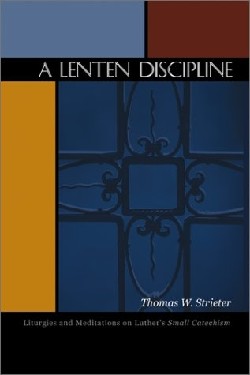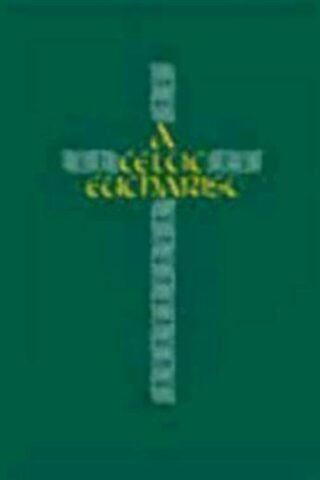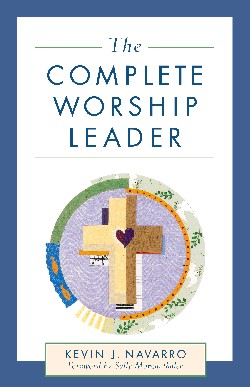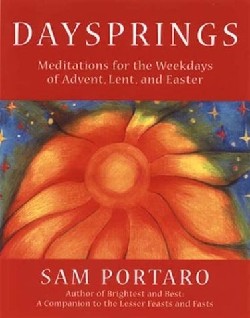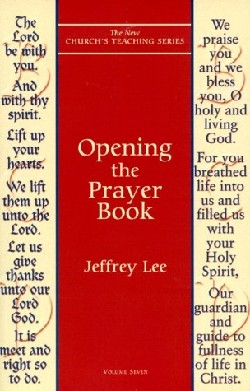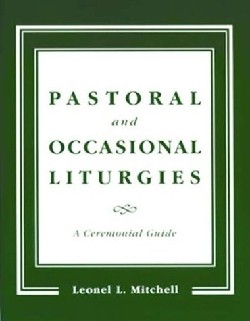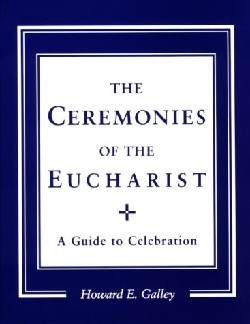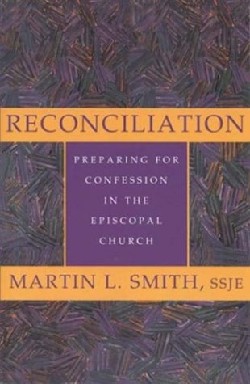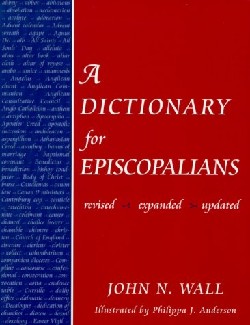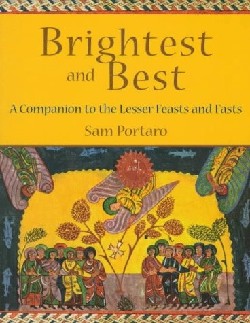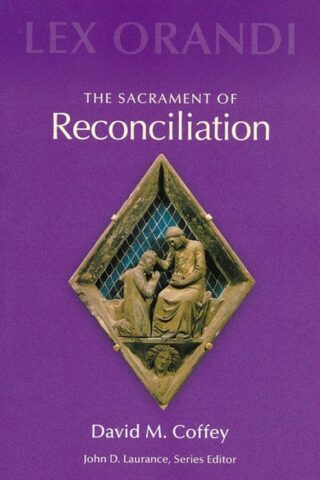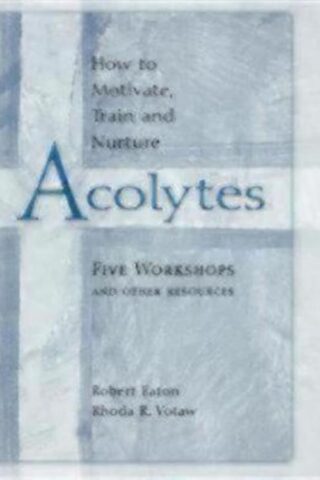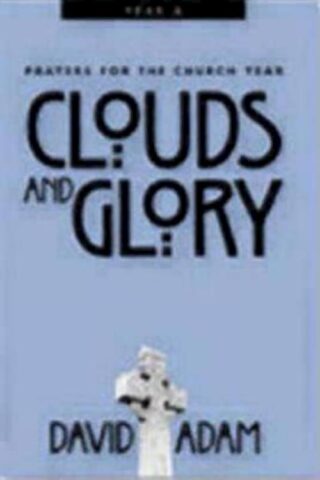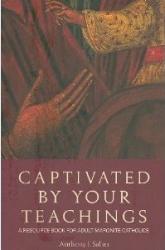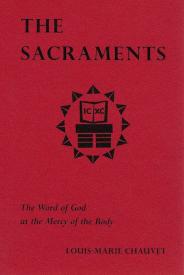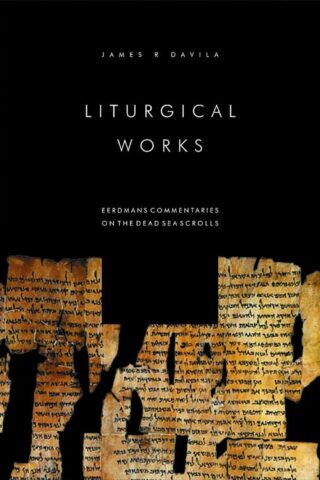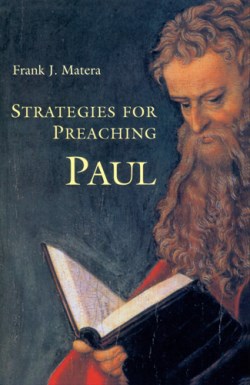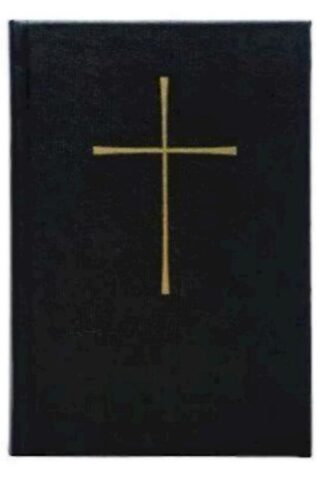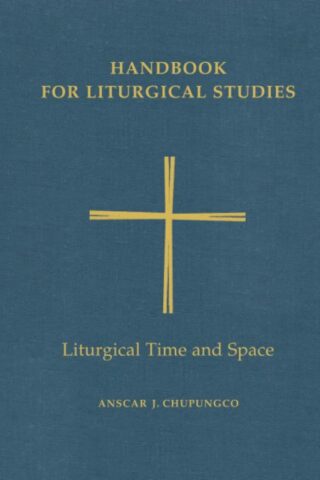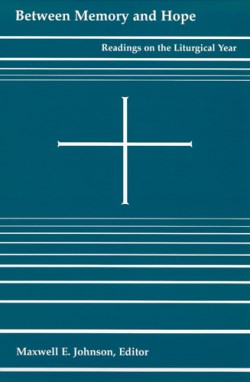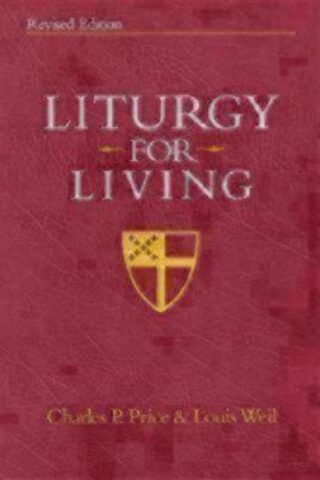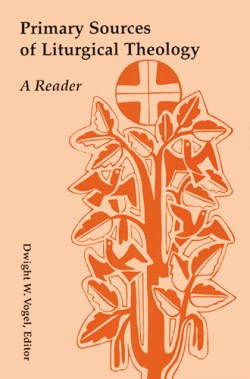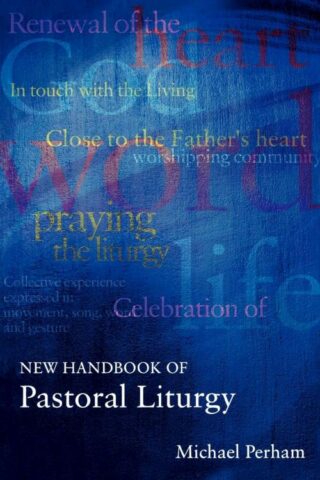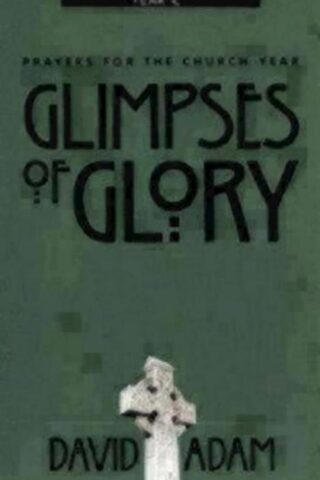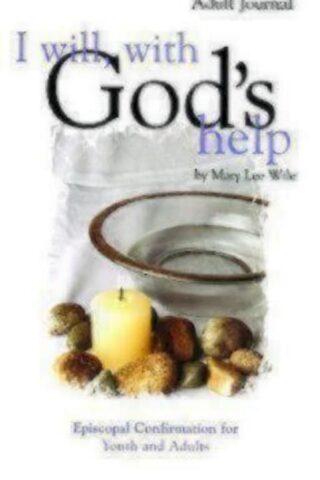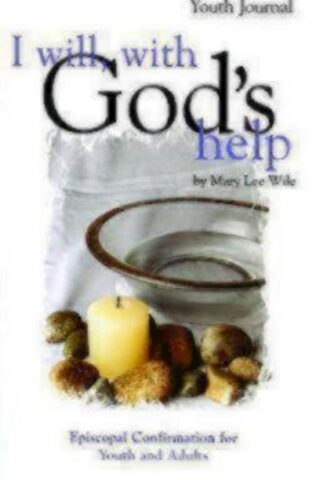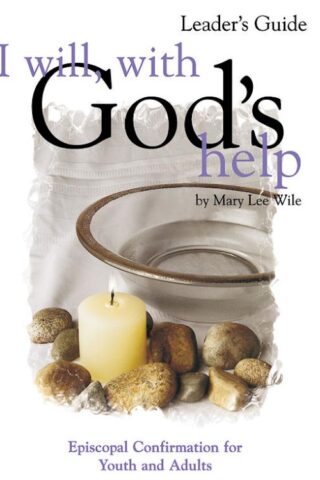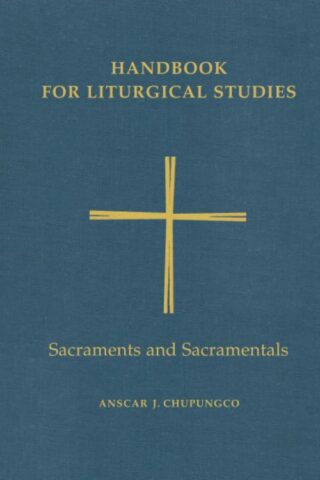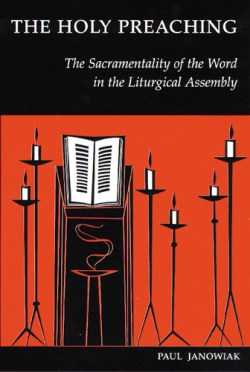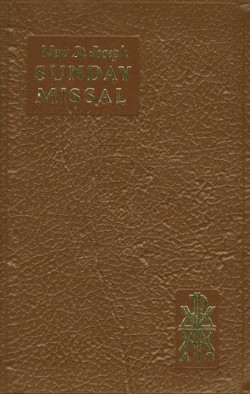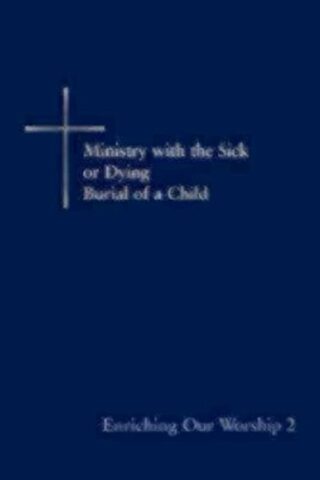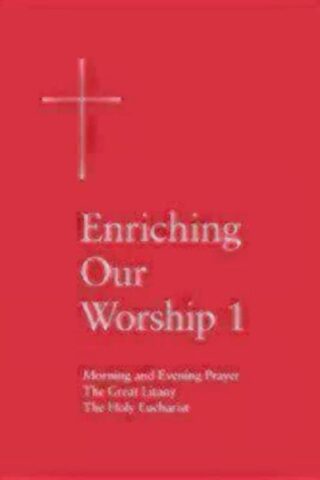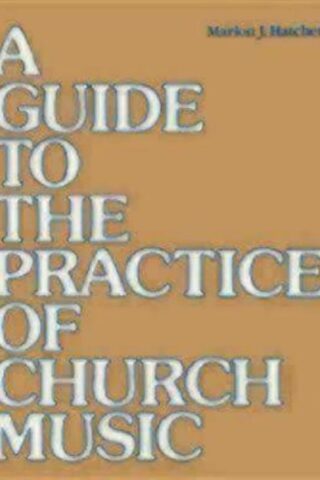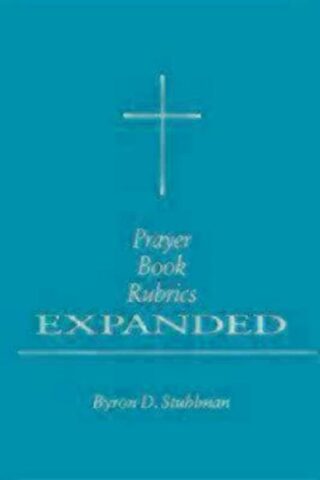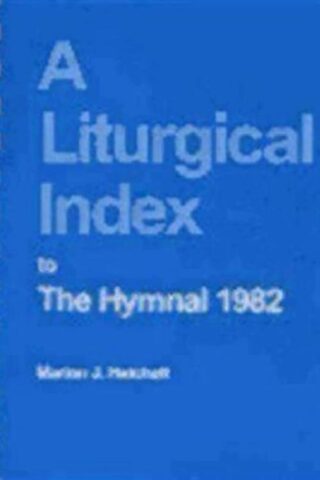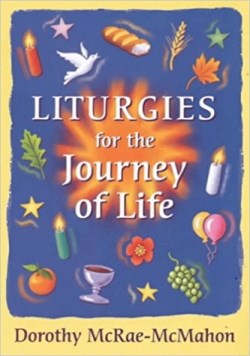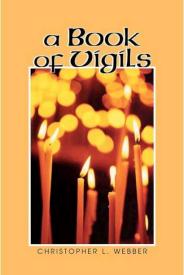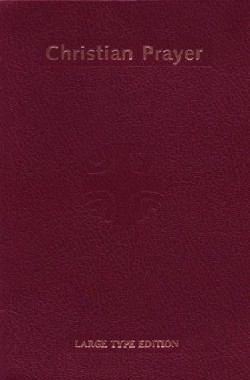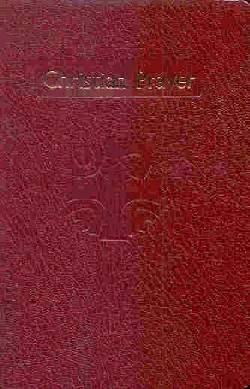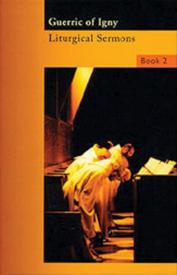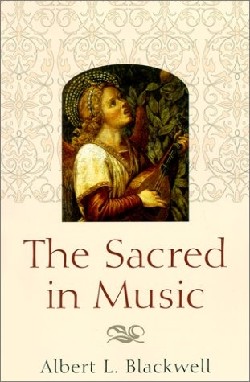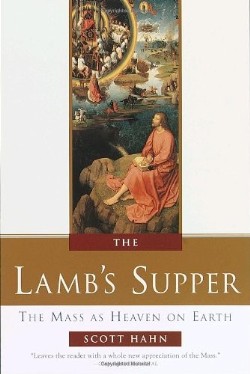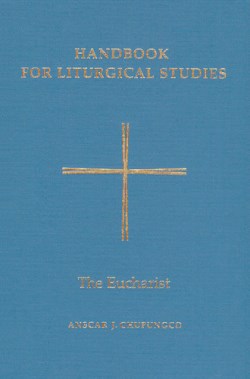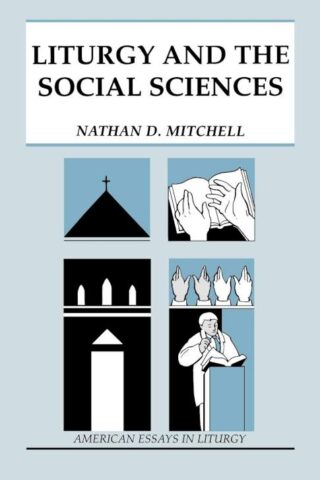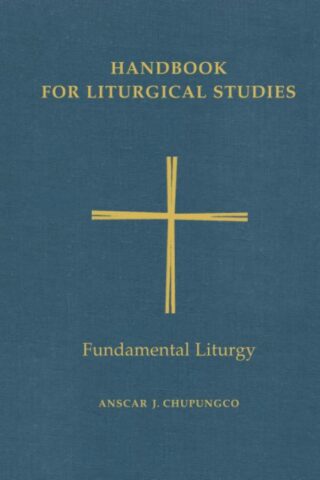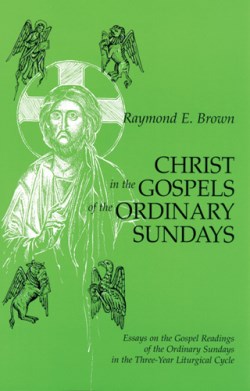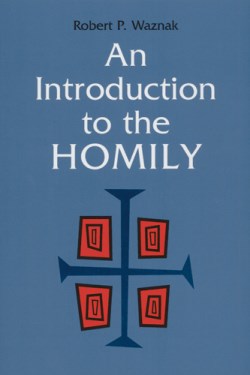Liturgy
Showing 151–200 of 242 resultsSorted by latest
-
Lenten Discipline
$12.95Add to cartAn acclaimed Luther scholar revisits the wisdom of Martin Luther’s Small Catechism in this complete Lenten program. Based on the six sections of the catechism, A Lenten Discipline provides instructive homily/meditations and worship services for each week in Lent, including Maundy Thursday. An initial chapter examining the Word of God as Law and Gospel sets the tone for the series and can be used as the basis of an Ash Wednesday sermon. Subsequent weeks explore the basic teachings of the faith on the Ten Commandments, the Apostles’ Creed, the Lord’s Prayer, Baptism, Confession, and Holy Communion.
Though perfectly suited for congregational use during Lent, this series has a multitude of other applications. In addition to catechism or confirmation instruction, it’s also excellent for a sermon series, as a theological resource, or for classrooms, workshops, and retreats. But whatever the setting, these informative homily/lectures and worship experiences will give users new insight into Luther’s genius.
-
Dissident Daughters
$40.00Add to cartWith its focus on narratives, its attention to contextual and material realities, and its collection of women-identified liturgies in global context, Dissident Daughters claims prominence within the growing literature on women’s ways of worship. This book not only introduces liturgical texts, but also focuses on the communities that create and celebrate these liturgies. Dissident Daughters gives voice to women activitsts who show how their communities came into being; how social, cultural, and political realities shaped them and their liturgies; and how they envision their lives in and as communities of faith. In drawing the different narratives together, Dissident Daughters displays the expanse fo the worldwide expression of women’s rites and the formation of each by distinctly different contexts of struggle and hope.
-
Sacrament Of Reconciliation
$29.95Add to cartAlthough it did not come from Christ in the form it has today, it is clear from Scripture that reconciliation was central to the ministry of Christ. In The Sacrament of Reconciliation David Coffey examines the theology of reconciliation and addresses the crisis that the sacrament faces in the present pastoral situation of the Church.
Father Coffey calls on Scripture and tradition, to the magisterium, and to theology in his analysis. However, he also moves beyond these to look at the practice of the Church and to the liturgy as it is regulated, celebrated, and experienced. In doing so, he presents a theology of the sacrament of reconciliation that is truly based on, and inspired by, the liturgy. This theology is molded by two contextual factors: the crisis that the sacrament is currently undergoing in the developed nations of the West and the restrictions imposed by Rome on the “third rite,” the most communal of the three forms of the sacrament.
Since the sacrament of reconciliation exists for the forgiveness of postbaptismal sin, chapter one is devoted to a theology of sin. Here, Father Coffey identifies what the main theological cause is at the heart of the present crisis, namely, a serious and widespread confusion about the nature of sin. Chapter two focuses on the Church’s ministry of reconciliation. This chapter provides both essential knowledge and a response to the widely held view that one does not need to turn to the Church in order to obtain forgiveness from God for sin. Chapter three examines the four parts of the sacrament: contrition, confession, absolution, and the prescribed work of penance. The investigation in this chapter suggests theological limits to possible future reforms of the sacrament. In chapter four Father Coffey offers a detailed examination of the three sacramental rites and the nonsacramental service set down by The Rite of Penance. Finally, in chapter five, Father Coffey offers some predictions about the future of the sacrament, based on his study.
-
Clouds And Glory
$19.95Add to cartClouds and Glory is one of a three-volume collection of prayers, scripture readings, and blessings based on the Common Worship Lectionary, used in many parts of the Anglican Communion. Written in the Celtic style for which the author is known, and linked to the Sunday readings for Year A, these prayers and intercessions may be used by congregations for the Prayers of the People, as well as by those who seek to supplement their own daily devotions.
-
Captivated By Your Teachings
$25.00Add to cartThis book is not only for Maronite Catholics but for all people who want to know more about one of the rich traditions of the Catholic Church. There are many ways to be a Catholic. When people think of Catholicism, they too often think that the Tradition of Roman Catholicism is the only way that Catholics live out their faith commitment. However, this couldn’t be further from the truth. There are in fact many Catholics whose spiritual, liturgical, historical, even disciplinary Traditions are closer to the Eastern Traditions of the Church and to the Eastern origins of Christianity.
-
Sacraments : The Word Of God At The Mercy Of The Body
$34.95Add to cartWhy, from its very beginnings, has the Church celebrated the sacraments, in particular baptism and Eucharist? Why, from its origin, has faith in Christ, which is expressed in a human, free, just, loving way of living, ruled by the gospel, also been expressed in the language of rites?
The Sacraments by Louis-Marie Chauvet offers reflections on the theology, celebration, and pastoral usage of the sacraments. It is a textbook version of Chauvet’s, Symbol and Sacrament published by The Liturgical Press in 1995 that was acclaimed by theologians as offering a fresh theology of the sacraments from a perspective other than scholastic theology.
-
Liturgical Works
$39.99Add to cartAmong the manuscripts of the Dead Sea Scrolls are numerousfragments of liturgical texts: daily and festival prayers, songs and praises, and other fascinating documents. This inaugural volume in the Eerdmans Commentaries on the Dead Sea Scrolls series explores these important ancient texts, throwing new light on the ritual life of Jews at the turn of the common era. Beginning with a general introduction to the Qumran library and Jewish liturgical traditions, James Davila situates the liturgical texts found at Qumran in their historical context in translation of these Hewbrew texts and provides detailed line-by-line explanations of each document. Throughout his book Davila shows how the Qumran liturgical texts draw on and develop traditions from the Hebrew Bible, and he explores their significance as background to Jewish liturgy, Jewish mysticism, and Christian origins. This volume and the complete commentary project will become the standard reference work on the Dead Sea Scrolls.
-
Strategies For Preaching Paul
$21.95Add to cartNothing is more central to the Church than preaching the gospel, and few have preached the gospel with the intensity and insight of St. Paul. Paul’s letters play an important role in the New Testament and in the Roman Lectionary. Yet, despite their importance, Paul’s teaching is seldom proclaimed from the pulpit. In Strategies for Preaching Paul, Frank Matera provides preachers with the comprehensive background needed to successfully preach the Pauline readings.
More than a collection of homily hints, Strategies for Preaching Paul provides preachers with three strategies for preaching the Pauline readings in the Sunday Lectionary during Ordinary Time. It offers summaries first of the historical setting, then the literary context, and finally the theological themes of all the Pauline readings as well as the readings of the Letter to the Hebrews. Each letter is introduced by explaining the historical circumstances that caused it and its literary structure. Next, each Sunday reading is explained in light of its wider literary context and its historical background, suggesting ways in which preachers might employ the text in the Sunday homily. Finally, after considering the letter, Matera suggests the major Pauline themes of the letter that need to be preached, such as justification by faith, the return of Christ, the resurrection of the dead, and the moral life of believers.
An exceptional resource for preachers, Strategies for Preaching Paul also serves as an introduction to Paul’s thought. It may be used in Lectio divina to reflect upon the Sunday Pauline texts.
-
Liturgical Time And Space
$99.95Add to cartThe Handbook for Liturgical Studies provides a course of liturgical studies in five volumes. It is offered as a model, source, and reference for students of liturgy and liturgical ministry.
The Handbook differentiates from its predecessor Anamnesis, published by the Pontifical Liturgical Institute. First, the subjects in the liturgical ordo, history, and tradition are examined as components of the theology of liturgy. Next, the Handbook pays significant attention to the role played by the human sciences in the liturgy (psycho-sociology, anthropology, linguistics, and the arts.) Pastoral and spiritual considerations receive appropriate treatment in light of liturgical principles, and general models based on the meaning and purpose of the liturgy are suggested. The materials of the East and the non-Roman West are integrated with the Roman, providing a comprehensive vision of Christian worship.
More than forty authors from Asia, Africa, Latin America, North America, and Europe have contributed to the Handbook. Many are professors of the Pontifical Liturgical Institute in Rome. Each author, while drawing material from liturgical tradition and from ancient, medieval, and modern sources, writes also from a particular research and personal interest in a subject. Although diverse in style, the authors collectively express a spirit of fidelity to the Church, to its doctrine and tradition, and to its mission. The result is a cohesive view of the meaning, purpose, and celebration of Christian worship.
The editor’s goal in these volumes is for students to learn the methodology, historical setting, theological and spiritual doctrines, and the pastoral concerns of the liturgy. Through these volumes, readers are led not only to a scientific understanding of the liturgy but also to an active and spiritually fruitful participation in the ecclesial celebration of Christ’s mystery desired by the Second Vatican Council.
-
Between Memory And Hope
$49.95Add to cartThis anthology surveys the development and theology of the liturgical year in the order of its historical evolution: “From Sabbath to Sunday”; “From Passover to Pascha” (Lent, Holy Week, Easter, and Pentecost); and “From Pascha to Parousia” (Epiphany, Christmas, and Advent). In addition, introductory essays on the meaning of the liturgical year and a short concluding section on the sanctoral cycle (“From Parousia to Persons”) are also provided. While written as a companion to standard works in the field, beginning with graduate students in liturgy and seminarians, this book is intended for all–pastors, liturgists, catechists, religious educatorsho seek to live according to the Church’s theology of time as it is reflected in its calendar of feasts and seasons.
-
Liturgy For Living (Revised)
$30.95Add to cartFirst published in 1979 as part of Seabury’s Church Teaching series, this classic explores the historical, theological, and spiritual dimensions of Anglican liturgy, then focuses specifically on baptism, confirmation, the daily office, holy eucharist, and various pastoral offices. A plethora of insights.
-
Primary Sources Of Liturgical Theology
$49.95Add to cartThe voices of liturgical theology in the twentieth century are many and varied. Primary Sources of Liturgical Theology brings together in one volume the representative writings of scholars throughout the Euro-North American context whose insights have shaped our understanding of liturgy today.
The selections in Primary Sources of Liturgical Theology are arranged around nine seminal questions which students of liturgical theology need to engage. Each selection is introduced and contextualized by another liturgical theologian. Through this first-hand encounter with primary sources readers will develop a sense of the broad range of writings available to them.
-
Pastoral Liturgy New Handbook
$34.99Add to cartA guide to liturgy and worship in the Church of England within the framework of ‘Common Worship’, which combines theory, theology and history with a strong sense of the realities of parish life and pastoral practice. It explores the way in which liturgy can reflect the life of the church and the wider world, and the new opportunities for churches at a local level to own and shape the liturgy they use. This book is essential reading for anyone involved in worship in the Church of England, and who wants the worship of their church to be the best they can offer, based on clear liturgical principles. It is also practical and detailed – Michael Perham covers clothing and colours, children’s role in worship, the cycle of the Christian year, the timing of services, the use of church space and other elements that go to make up the feel of an individual church. The book has its roots in two of Michael Perham’s earlier works, ‘Liturgy Pastoral and Parochial’ and ‘Lively Sacrifice’, though much of the material is quite new, and fills its role as key texts for anyone interested in the liturgy of the Church of England.
-
Glimpses Of Glory
$21.95Add to cartGlimpses of Glory is the second in a three-volume collection of prayers and other resources based on the new Common Worship Lectionary used widely around the world. Written in the Celtic style for which the author is well-known, and linked to the Sunday readings, these prayers and intercessions may be used by congregations for the Prayers of the People, as well as by individuals seeking to supplement their personal devotions.
“Holy God open our ears to your call our eyes to your presence, our hearts to your love. Give us the courage to say, ‘Here I am Lord, send me.’ Strengthen our faith that we may be willing at all times to heed your call. We pray for all who are called to proclaim your glory, all who seek out the lost, uplift the fallen and comfort the wounded. We pray for the outreach of the church to which we belong. Lord as you have called us Make us worthy of our calling.” -
I Will With Gods Help Adult Journal (Student/Study Guide)
$11.95Add to cartAn interactive journal for adults that complements the comprehensive 6-12 week confirmation program. Invites confirmands to explore their own faith experiences in the context of the larger faith community. Includes lots of room for recording thoughts and reflections on the confirmation process.
If you are ordering a quantity of 30 or more, please call 1-800-824-1813 to receive your volume discount.
-
I Will With Gods Help Youth Journal (Student/Study Guide)
$11.95Add to cartAn interactive journal for youth that complements the comprehensive 6-12 week confirmation program. Invites confirmands to explore their own faith experiences in the context of the larger faith community. Includes lots of room for recording thoughts and reflections on the confirmation process.
If you are ordering a quantity of 30 or more, please call 1-800-824-1813 to receive your volume discount.
-
I Will With Gods Help Leaders Guide (Teacher’s Guide)
$26.95Add to cartA comprehensive 6-12 week program that invites confirmands to explore their own faith experience in the context of the larger faith community. Materials are flexible enough to be used in a wide variety of parish settings. Interactive journals are available for youth and adult candidates.
-
Sacraments And Sacramentals
$99.95Add to cartThe Handbook for Liturgical Studies provides a complete course of liturgical studies in five volumes. It is offered as a model, source, and reference for students of liturgy and liturgical ministry.
The Handbook for Liturgical Studies is marked by a number of traits which differentiate it from its predecessor Anamnesis, published by the Pontifical Liturgical Institute. First, the subjects in the liturgical ordo, history, and tradition are examined as sources and components of the theology of liturgy. Next, the Handbook pays significant attention to the role played by the human sciences in the liturgy (psycho-sociology, anthropology, linguistics, and the arts.) Pastoral and spiritual considerations receive appropriate treatment in light of liturgical principles, and general models based on the meaning and purpose of the liturgy are suggested. The materials of the East and the non-Roman West are integrated with the Roman, providing a comprehensive vision of Christian worship.
More than forty authors from Asia, Africa, Latin America, North America, and Eastern and Western Europe have contributed to the Handbook. Many are professors and graduates of the Pontifical Liturgical Institute in Rome. Each author, while drawing material from liturgical tradition and from ancient, medieval, and modern sources, writes also from a particular research and personal interest in a subject. Although diverse in style, the authors collectively express a spirit of fidelity to the Church, to its doctrine and tradition, and to its mission. The result is a cohesive view of the meaning, purpose, and celebration of Christian worship.
The editor’s goal through these volumes is for students to pay particular attention to the gradual unfolding of the material from Volume I to Volume V as well as to the methodology, historical setting, theological and spiritual doctrines, and the pastoral concerns in the Handbook. Through the study of these volumes, readers are led not only to a scientific understanding of the liturgy but also to an active and spiritually fruitful participation in the ecclesial celebration of Christ’s mystery desired by the Second Vatican Council.
Volume IV: Sacraments and Sacramentals contributes to a deeper understanding of the nature and purpose of sacraments and sacramentals and leads the reader to a more critical appreciation of Vatican II decrees and what the postconciliar reform has implemented. This fourth volume opens with a review of the basic litu
-
Holy Preaching : The Sacramentality Of The Word In The Liturgical Assembly
$29.95Add to cartThe reform of the liturgy has dramatically changed the way Roman Catholics and all Christians understand their worship. The arena of the encounter has shifted from a passive experience of observation of the great Mysteries to one that invites active participation on many levels. Yet, the imagination of many who preach, preside, and gather to worship continues to be shaped by a passive model as well as by the notion of sacramental activity as a product to be received or given, rather than expressed and shared in communion with one another. In The Holy Preaching, Paul Janowiak deepens the discussion of Christ’s presence in the Word by offering critical reflection on the disparity between the theology and the practice of preaching and some explanation as to why that disparity exists.
Janowiak provides an overview of twentieth-century ecclesial sacramentality. He discusses the liturgical movements and important theological issues that led to reform and provides an in-depth analysis of how sacramental theologians Karl Rahner, Otto Semelroth, and Edward Schillebeeckx advanced the dialogue of Christ’s presence in the Word. He explains that despite the seminal work done by those sacramental theologians, a specifically liturgical understanding of Christ’s presence in the Word remains largely a theological concept and not a grace-filled reality. Part of this gap in theory and practice is the result of a fractured liturgical celebration. The Liturgy of the Word appears a distinct and often unrelated part of the entire eucharistic celebration. Using contemporary literary theory, Janowiak tackles this gap and roots out the foundations of this disparity between theology and its practice in worship. He inserts creative liturgical and sacramental theology into the literary particularities of sacred text, shared tradition, and communal hearing. From this a new lens on the sacramentality of the Word emerges.
The dialogue begun by sacramental theologians Rahner, Semelroth, and Schillebeeckx is re-opened by Janowiak. He examines the fruits of the liturgical reform of the past forty years and parallel movements in critical theory. The result is an understanding of Christ’s presence in the Word in a way that reveals the Mystery of God at work in the gathering of believers.
-
Saint Joseph Sunday Missal Brown
$36.99Add to cartThe one all-inclusive, complete and permanent Sunday Missal. It contains all the official Mass prayers for Sundays and Holydays that are now in use throughout America. It includes the complete 3-year cycle of Sunday readings (for years A,B & C). It includes all the prayers from the Sacramentary…plus all the presidential prayers. These prayers are repeated for each cycle of readings to make this Missal “easy to use” and to eliminate unnecessary page-turning.
Catholics of all ages will truly treasure this excellent Missal destined to last a lifetime. Calendar to year 2016.
-
Enriching Our Worship 2
$22.95Add to cartPrepared by the Standing Commission on Liturgy and Music and adopted by the 73rd General Convention, this new set of materials was adapted from sources in scripture; a variety of contemporary prayer books throughout the Anglican Communion; traditional materials from Orthodox and medieval western sources; and hymnody of various American cultures. Newly written texts and some texts from the 1979 Book of Common Prayer which have been revised are also included.
-
Enriching Our Worship 1
$20.95Add to cartThis is the new edition of Supplemental Liturgical Materials. New materials include seventeen additional canticles taken from the Old Testament, the Apocrypha, the New Testament, Anselm of Canterbury, and Julian of Norwich. There are also additions and changes to the previously published supplemental materials including a third Eucharistic Prayer.
-
Book Of Vigils
$23.95Add to cartIntroduction
A Vigil In The Presence Of God
A Vigil For Peace And Justice
A Vigil For The Sick
A Vigil At The Time Of Death
A Vigil For Maundy Thursday
A Vigil Of Pentecost
A Vigil Before The Election Or Consecration Of A BishopAdditional Info
This useful book falls in the category of resources for structuring liturgies to fit local occasions. In addition to seven complete vigil services inspired by the ancient monastic discipline of nighttime prayer and meditation, there are new models such as “A Vigil in the Presence of God” or “A Vigil for Peace and Justice”.Ample notes throughout explain the history of vigils and offer advice for planning small private and large public vigils.
-
Christian Prayer (Large Type)
$51.99Add to cart“Christian Prayer,”…America’s finest and official one-volume edition of the “Liturgy of the Hours.” It is the easiest-to-read, most elegant, and easiest-to-use of all the editions. It is liturgically accurate, magnificently printed, and beautifully bound as befits its use for the Prayer of the Church. You will find this book ideal for both your private and your communal daily prayer.
-
Christian Prayer : Regular Edition
$46.00Add to cart“Christian Prayer,”…America’s finest and official one-volume edition of the “Liturgy of the Hours.” It is the easiest-to-read, most elegant, and easiest-to-use of all the editions. It is liturgically accurate, magnificently printed, and beautifully bound as befits its use for the Prayer of the Church. You will find this book ideal for both your private and your communal daily prayer.
-
Sacred In Music
$40.00Add to cartReligion and music are complementary resources for interpreting our lives. Music serves the sacred in ways that can be specified and articulated, yet the connection between them has been sorely neglected in the scholarly study of religion. In The Sacred in Music, Albert Blackwell brings the two subjects together in a celebration of the rich Western musical tradition, both classical and Christian.
-
Lambs Supper : The Mass As Heaven On Earth
$25.00Add to cartBestselling author Scott Hahn sheds new light on the Mass, offering readers a deeper appreciation of the most familiar of Catholic rituals .
Of all things Catholic, there is nothing that is so familiar as the Mass. With its unchanging prayers, the Mass fits Catholics like their favorite clothes. Yet most Catholics sitting in the pews on Sundays fail to see the powerful supernatural drama that enfolds them. Pope John Paul II described the Mass as “Heaven on Earth,” explaining that what “we celebrate on Earth is a mysterious participation in the heavenly liturgy.”
The Lamb’s Supper reveals a long-lost secret of the Church: The early Christians’ key to understanding the mysteries of the Mass was the New Testament Book of Revelation. With its bizarre imagery, its mystic visions of heaven, and its end-of-time prophecies, Revelation mirrors the sacrifice and celebration of the Eucharist.Beautifully written, in clear direct language, bestselling Catholic author Scott Hahn’s new book will help readers see the Mass with new eyes, pray the liturgy with a renewed heart, and enter into the Mass more fully, enthusiastically, intelligently, and powerfully than ever before.
-
Eucharist
$99.95Add to cartThe Handbook for Liturgical Studies provides a complete course of liturgical studies in five volumes. It is offered as a model, source, and reference for students of liturgy and liturgical ministry.
The Handbook for Liturgical Studies is marked by a number of traits which differentiate it from its predecessor Anamnesis, published by the Pontifical Liturgical Institute. First, the subjects in the liturgical ordo, history, and tradition are examined as sources and components of the theology of liturgy. Next, the Handbook pays significant attention to the role played by the human sciences in the liturgy (psycho-sociology, anthropology, linguistics, and the arts.) Pastoral and spiritual considerations receive appropriate treatment in light of liturgical principles, and general models based on the meaning and purpose of the liturgy are suggested. The materials of the East and the non-Roman West are integrated with the Roman, providing a comprehensive vision of Christian worship.
More than forty authors from Asia, Africa, Latin America, North America, and Eastern and Western Europe have contributed to the Handbook. Many are professors and graduates of the Pontifical Liturgical Institute in Rome. Each author, while drawing material from liturgical tradition and from ancient, medieval, and modern sources, writes also from a particular research and personal interest in a subject. Although diverse in style, the authors collectively express a spirit of fidelity to the Church, to its doctrine and tradition, and to its mission. The result is a cohesive view of the meaning, purpose, and celebration of Christian worship.
The editor’s goal through these volumes is for students to pay attention to the gradual unfolding of the material from Volume One to Volume Five as well as to the methodology, historical setting, theological and spiritual doctrines, and the pastoral concerns in the Handbook. Through the study of these volumes, readers are led not only to a scientific understanding of the liturgy but also to an active and spiritually fruitful participation in the ecclesial celebration of Christ’s mystery desired by the Second Vatican Council.
Volume III: The Eucharist contributes to the reflection on the meaning and purpose of the eucharistic celebration. It also offers to teachers and students of liturgy a handbook for studying this subject according to a system based on historical development, theology and doctrine, liturgical texts and traditions in bo
-
Liturgy And The Social Sciences
$16.95Add to cartIn his letter to liturgists meeting in Mainz, Germany, in 1964, theologian Romano Guardini asked: “Is ritual a forgotten way of doing things?” That question challenged Catholics to reevaluate the roots and roles of ritual. In an ongoing response to that challenge, liturgists have sought to reinterpret the multiple meanings of ritual using insights from the social sciences. In Liturgy and the Social Sciences, Nathan Mitchell examines the responses of liturgists to Guardini’s famous question.
In the first chapter Mitchell focuses on Aidan Kavanagh, O.S.B., a noted U.S. liturgist that undertook the challenge of answering Guardini’s question. He explains how Father Kavanagh’s innovative call for a new discipline-a “political science” of behavior-was taken up by American liturgists in a “classical” or “high church” mode that emphasized ritual action as traditional, authoritative, repetitive, conservative, and “canonical.”
The second chapter examines how the “high church consensus” began to unravel as a result of critical work done on “emerging ritual” by Ronald Grimes and David Kertzer. These scholars argued that new categories were needed to understand how ritual connects with social life and explained the characteristics of “emerging ritual” as innovative, untraditional, unpredictable, playful, and short term.
In the third chapter Mitchell explores some of the proposals that a new generation of anthropologists have made for interpreting ritual. He gives attention to the research of Talal Asad, who suggests that rituals are a “technology” aimed at producing “virtuous selves.” Michel Foucault’s “technologies of the self” is also discussed in this chapter.
Although written for directors of liturgy, Liturgy and the Social Sciences will also appeal to DREs, clergy and religious, directors of adult formation, persons working with candidates in RCIA, and students and teachers of liturgy who want to look beyond what we do to understand why we do it.
-
Fundamental Liturgy
$99.95Add to cartThe Handbook for Liturgical Studies provides a complete course of liturgical studies in five volumes. It is offered as a model, source, and reference for students of liturgy and liturgical ministry.
The Handbook for Liturgical Studies is marked by a number of traits which differentiate it from its predecessor Anamnesis, published by the Pontifical Liturgical Institute. First, the subjects in the liturgical ordo, history, and tradition are examined as sources and components of the theology of liturgy. Next, the Handbook pays significant attention to the role played by the human sciences in the liturgy (psycho-sociology, anthropology, linguistics, and the arts.) Pastoral and spiritual considerations receive appropriate treatment in light of liturgical principles, and general models based on the meaning and purpose of the liturgy are suggested. The materials of the East and the non-Roman West are integrated with the Roman, providing a comprehensive vision of Christian worship.
More than forty authors from Asia, Africa, Latin America, North America, and Eastern and Western Europe have contributed to the Handbook. Many are professors and graduates of the Pontifical Liturgical Institute in Rome. Each author, while drawing material from liturgical tradition and from ancient, medieval, and modern sources, writes also from a particular research and personal interest in a subject. Although diverse in style, the authors collectively express a spirit of fidelity to the Church, to its doctrine and tradition, and to its mission. The result is a cohesive view of the meaning, purpose, and celebration of Christian worship.
The editor’s goal through these volumes is for students to pay attention to the gradual unfolding of the material from Volume One to Volume Five as well as to the methodology, historical setting, theological and spiritual doctrines, and the pastoral concerns in the Handbook. Through the study of these volumes, readers are led not only to a scientific understanding of the liturgy but also to an active and spiritually fruitful participation in the ecclesial celebration of Christ’s mystery desired by the Second Vatican Council.
What concepts must one have in order to understand and explain the nature and purpose, the plan and actualization, and the relational character of the liturgy? Volume 2: Fundamental Liturgy addresses this question in three parts-epistemology, celebration, and human sciences-which develop the foundational concepts of
-
Christ In The Gospels Of The Ordinary Sundays
$17.95Add to cartFather Brown discusses how a Gospel was formed and explains what is distinctive about each of the four Gospels. Then he fits the Sunday readings into an overall picture of each Gospel, showing how the Gospel shapes the narrative, its the theological emphases, and what it says to readers.
-
Introduction To The Homily
$24.95Add to cartRobert Waznak, a preacher and for the past twenty-five years a popular teacher of preachers, believes that before we consider how to preach a homily we need to explore what the homily is. That is why An Introduction to the Homily is not just another “how to” book, but a work that leads to a practical understanding of what the Sunday homily is supposed to do. Based on theological and historical foundations, this work provides sound theory for homilists striving to improve their preaching.
Chapter one explores the form of preaching called the homily both from historical and contemporary understandings. It fills a void in many Catholic homiletic texts and articles on preaching by offering a brief overview of the “New Homiletic,” a new approach that recognizes other homiletic structures besides the deductive or Aristotelian. Chapter two presents an overview of the preacher from four major images within the Catholic homiletic tradition: the herald, the teacher, the interpreter, and the witness. Chapter three examines the origins of the Lectionary to help understand its place in the preaching event and explores some practical solutions to its problems. Chapter four provides helpful responses to questions concerning practical aspects of the homily.
Hundreds of books on preaching have appeared since Vatican II, yet these homiletic texts rarely include the theological and liturgical insights from Catholic scholars and church documents. In An Introduction to the Homily, Robert Waznak demonstrates how new homiletic scholarship from Christian churches; the insights found in normative Church documents; contemporary theological, liturgical and biblical studies; plus the lived experiences of preachers and people can help us come to understand the function of the homily in the liturgical tradition of the Church.

